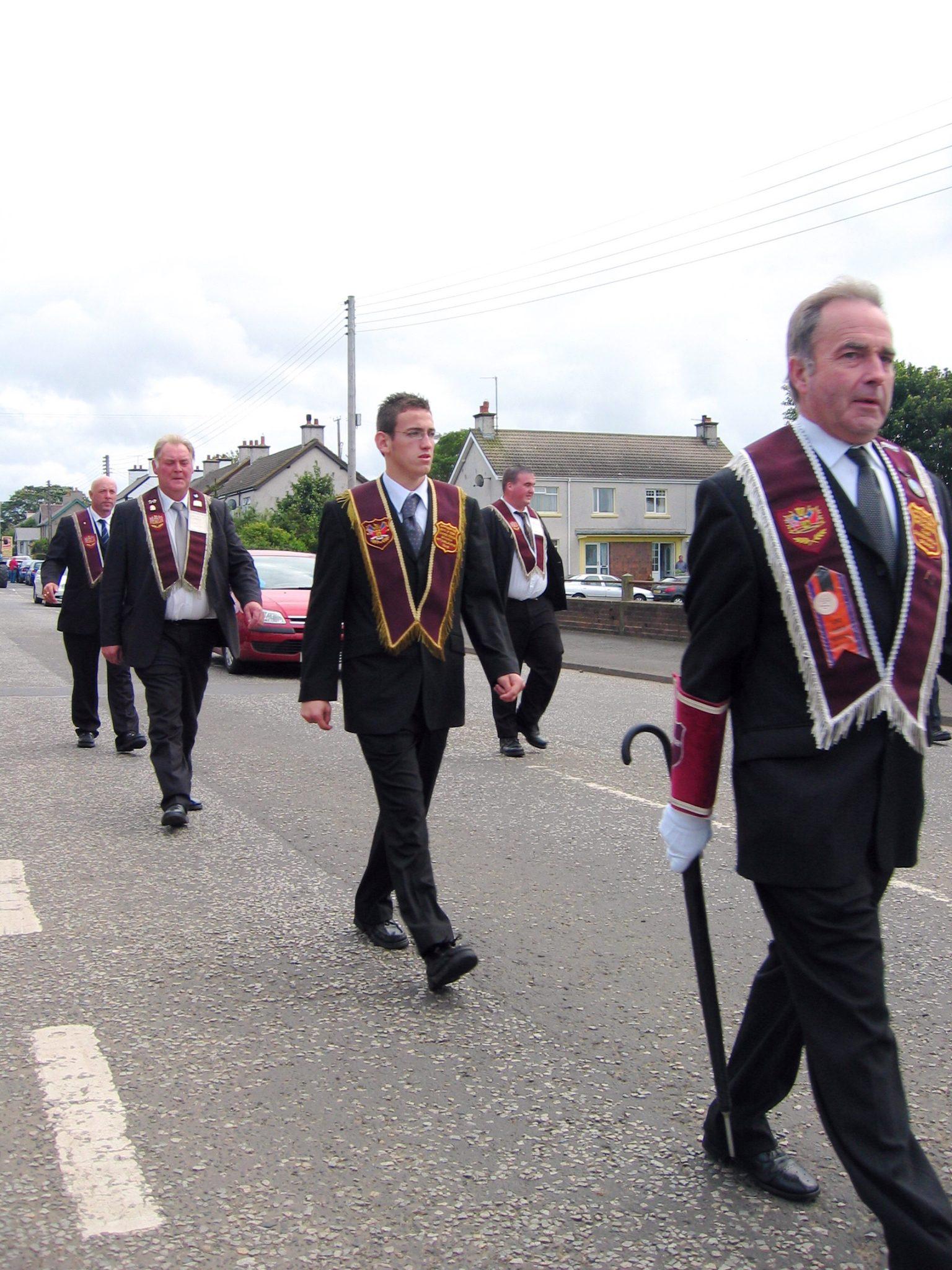LEICESTER, United Kingdom – An Easter Sunday march by a Protestant fraternal order in Scotland will be re-routed to avoid a Catholic church where a priest was assaulted during a similar parade last year. The route was also moved to avoid a second Catholic church.
The decision was made on Tuesday by the Glasgow City Council after police voiced concerns that the event by the Apprentice Boys of Derry would potentially pose a “significant risk to public order” if the route wasn’t changed.
The Apprentice Boys of Derry is a fraternal Protestant order founded in Derry – now in Northern Ireland – in 1814. Like the more widely-known Orange Order, it organizes parades to celebrate the defeat of the Catholic King James II in the 17th century to the Protestant King William of Orange.
The parades organized by Protestant fraternal orders often lead to tensions with Catholics, both in Northern Ireland and Scotland, which is home to a large Irish diaspora of both religious backgrounds.
Last July, Father Tom White was greeting people after Mass at Glasgow’s St. Alphonsus Church when an Orange Order parade approached. He was verbally assaulted and spat upon in the encounter.
RELATED: Catholic priest spat upon, parishioners heckled at Orange Order march in Scotland
The Easter parade by the Apprentice Boys was originally scheduled to pass the same church, as well as St. Mary’s, another Catholic church.
“Members chose to re-route the procession after hearing serious concerns, raised by Police Scotland, about the potential for disorder due to protests and counter-protests from people opposing or supporting the event,” said a spokesperson of the city council.
In a tweet, the Archdiocese of Glasgow said it welcomed the decision to re-route the parade away from the churches: “The right of ordinary people to go to Mass on Easter morning, free from intimidation and fear is one that must be respected and defended.”
Graeme Stenhouse, a member of the leadership of the Apprentice Boys of Derry, said there wasn’t “any reason for a change,” noting the previous problems had been with the Orange Order, not his organization.
“We have made great strides over the last 10 years to be seen in a good light. We don’t want to be confrontational and cause bother,” he told the Evening Times.
“There have been no issues with us in the past. I know there was an issue last year but that was not the Apprentice Boys,” Stenhouse continued. “Apprentice Boys parades are conducted in a very good manner. I don’t know if Glasgow City Council has an anti-Loyal Order stance, or are trying to stop parades.”
Call it Out, which campaigns against anti-Catholic bigotry and anti-Irish racism in Scotland, said it was “delighted” with the decision.
“We think it’s a sensible decision that meets the needs of everyone. They can march and it doesn’t go past the churches. That’s all we’ve asked for,” Jeanette Findlay, who heads the organization, told CommonSpace, an online portal.
However, she said a long-term solution is needed, so concerned citizens didn’t need to approach the city council every time a parade takes place.
“For as long as I’ve known the practice has been that the council make the decision and almost always give the go-ahead for the organiser’s proposed route if Police Scotland don’t say there’s likely to be disorder. We think that’s not the right way to go about it. The councils have it in their power to have a sensible policy on the routing of marches, and the police too shouldn’t only consider the threat of disorder when they give their advice, if they take a human rights-based approach to policing seriously,” Findlay said.
“We need to sit down and come to a view for the long-term. We’re not looking for a fight, we’re not looking to ban anybody, we’re just wanting to come to an agreement so that there’s a consistent policy,” she said.
















